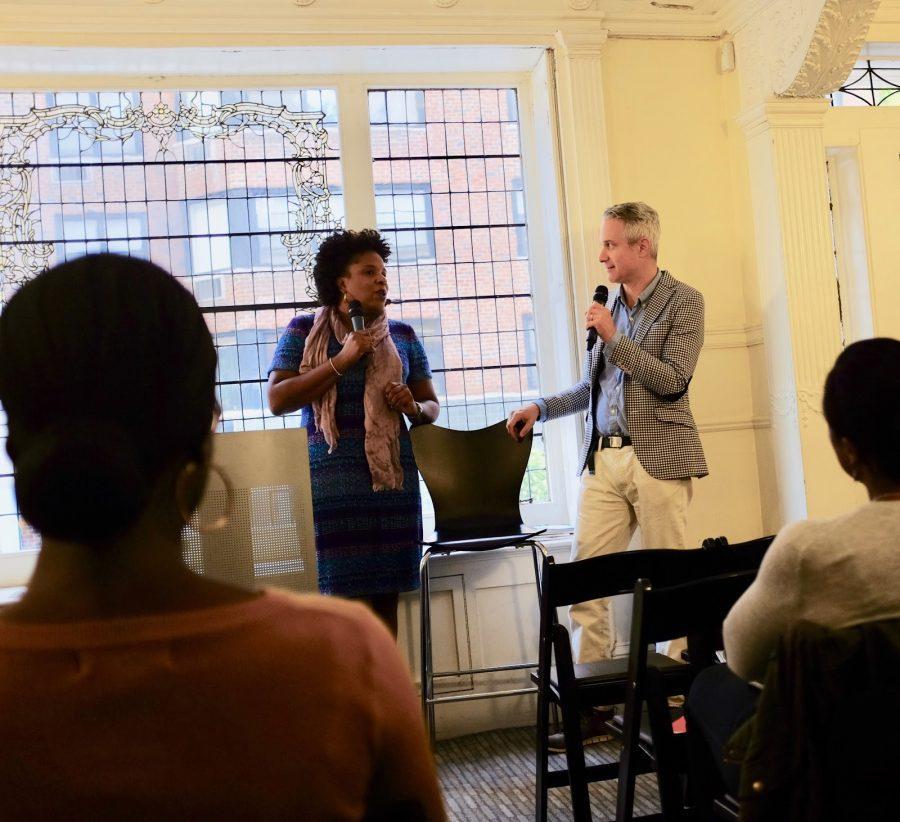When introducing Tayari Jones at the Lillian Vernon Creative Writers House this Friday afternoon, Darin Strauss recounted his first impressions of her. He noted that the first things that struck him about Jones were her warm kindness and fierce intelligence. He said that Jones was one of the most ambitious and daring writers around. It’s hard to believe the person that Strauss describes claims to only write three times a week in sittings that last “no longer than a typical workout.” But this idiosyncrasy speaks directly to her character, and perhaps even her genius.
Jones has written the novels “Leaving Atlanta,” “The Untelling,” “Silver Sparrow” and “An American Marriage” and has won numerous awards and fellowships, her latest being the National Book Award Longlist for Fiction in 2018. During her reading, however, Jones failed to mention this prestigious award. She instead focused on another achievement: receiving a call from Oprah Winfrey to tell her that “An American Marriage” had been chosen as a pick for Oprah’s Book Club. Jones had been driving when she received the call and had to promptly pull over when she heard the life-changing news. A large number of people read the books from Oprah’s Book Club. There were even several at the reading who remarked that the only reason they had read the book was because of Oprah’s Club. Jones was overjoyed.
For Jones, writing “An American Marriage” was a laborious process that was distinctive from her other works. She had written novels before, but Jones claims that they were largely autobiographical and that “An American Marriage,” in contrast, was inspired by a chance conversation and six years of research on mass incarceration. However, Jones reminded her Friday audience that she didn’t write the book to seek social justice or to simply regurgitate information — that would be too boring. She needed a story, not a statistic.
When Jones heard a young African-American couple fighting loudly in a food court, she listened closely. The young man had just been sentenced to around 10 years of jail time. The woman pointed out that that was a long time to wait and that he would never wait for her that long. The man didn’t disagree and the couple was left at a stalemate. Jones saw this as an incredible opportunity for a story — “two characters that disagree but are both right.” That was the kind of moral ambiguity, Jones said, that was central to a good novel.
Also central to a good novel, Jones pointed out, is the lack of an outline. When Jones writes, she likes to “chase a question,” not paint prose over a long roadmap of the story. This keeps her engaged and eager to discover the next conflict in her novel. Jones admitted that her approach may not work for everyone and, in fact, she left it out of her final piece of advice, which was addressed to young writers.
When asked if Jones had a mantra or a motto she could share, Jones left her audience with two key guidelines for writing a novel: “Find out as little about the business as you can and you don’t have to write every day.” Writers will always find a reason to hold off starting something as huge as a novel, but remember that those reasons might be more self-invented than one thinks.
A version of this article appeared in the Tuesday, Oct. 9 print edition. Email Claire Fishman at [email protected].


























































































































































